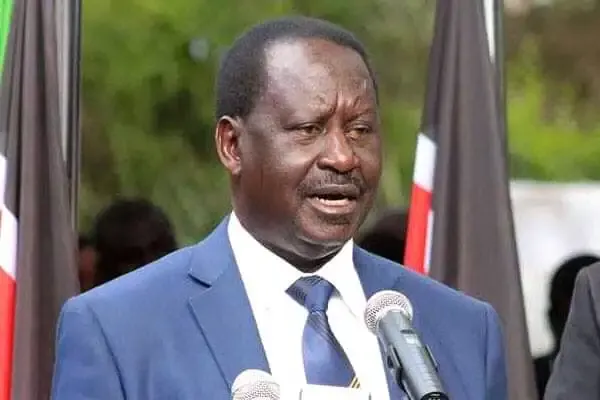Even though ODM party leader Raila Odinga is yet to come out publicly to declare whether or not he will be in the race to State House come 2022, many believe in the affirmative.
By Ndung'u Wa Gathua
Should that be the case, it will be Raila's fifth and definitely the last shot at the presidency having unsuccessfully bid for the same in 1997, 2007, 2013 and 2017.
But even if Odinga opts not to run, he will still go down in this country's books of history as the 'President' that Kenya never had. However, this article will be focusing on scenario where Raila will be in the race to succeed President Uhuru Kenyatta. What are the chances that his fifth trial will pay off?
Well, without beating about the bush, Raila's fifth shot, just like the other previous four, will likely amount to taking coal to Newcastle. Below I will be explaining why.
First, as it is often said, it is only a fool who keeps doing one thing expecting different results. At the moment, many have a fallacy that Odinga will almost automatically succeed Uhuru after the duo buried their hatchets and agreed to work together following the March, 2018 handshake.
This mistaken belief has further been fuelled by Uhuru's fallout with his deputy William Ruto, his pre-handshake presumed successor. But take it or leave it, nothing could be further from the truth, if similar past arrangements starring Raila is anything to buy into.
Following his first and botched 1997 presidential bid, Raila would enter into a similar working arrangement with President Daniel Moi's KANU, which apparently bequeathed him the 'curse' of untamed passion for the presidency.
Raila's coalition with Moi saw the birth of New KANU after his NDP party and old KANU were collapsed into the new formation that Raila was highly expectant he would be its flag bearer come 2002. It was never to be!
Consequently, he stormed out of KANU with his troop and other old KANU irritants and sought refuge in Kibaki's opposition.
He would go ahead and declare 'Kibaki tosha' but not before signing a memorandum of understanding with Kibaki and which the latter knew from day one he would never implement.
Throughout, Kibaki's 10-year reign, Raila's untamed passion for the top seat was used against him to keep him in check. This saw Raila make several compromises after he was given the false perception that he was the President-in-waiting. Again, it was never to be!
Uhuru could be applying the same script albeit differently aware that the antidote to Raila's untamed passion for the presidency is to bring him so close to power while keeping him so far from it! Maybe I am damn right, maybe I am damn wrong!
CLOSING ARGUMENT
Curiosity killed the cat! This old proverb warns on the dangers of 'unnecessary experimentation' as it has been Raila's case with Moi, Kibaki and now Uhuru. Don't forget that all these 'unnecessary experimentations' by Raila all stems from his untamed passion for power.
Johann Wolfgang von Goethe (1749-1832), renowned German philosopher and statesman, would also warn against untamed passion over reason: "Passions, emotions, may be made popular; but reason remains ever the property of an elect few. Great passions are incurable diseases."
I will now sum up my closing argument with the below fable that best describes Raila's untamed passion for power and its dangers.
Also Read:
-UhuRaila Handshake: A Political Marriage Built on Treacherous Flattery?
-Why Mt Kenya's 'Dancing Monkeys' Remain Ruto's Biggest Headache as 2022 Edges Closer
-BBI Quest: The Tragedy That may be Awaiting Kenyans at the Finishing Line
-Poetic Justice: Why UhuRaila's Scheme Against Ruto Might End up in Tears
-Foxy Brilliance or Indecisiveness? Mudavadi's 'Stubbornness' as Opposition Colleagues Board the Omnibus to 'Heaven'
The Lion in Love
A lion falls in love with a peasant's daughter and asks the father's permission to marry her.
Unwilling to refuse outright, the man sets the condition that the animal should first have its claws clipped and its teeth filed. When the lion complies, the man clubs it to death, since it can now no longer defend itself.
The fable warns against ever letting down one's guard where an enemy is concerned. If you follow the advice of your enemies you will run into danger.
However, it is Hieronymus Osius, a Latin poet, who perhaps draws a much expounded lesson by tracing the source of the events that leads one to the hands of the enemy in the first place.
In a poem he composed based on the fable he observes: "By passion the cleverest are sometimes led astray, and the strongest tamed."
Liked the story and would want to get similar pieces on the latest politics? Follow me on Opera News Hub HERE and stay updated.



